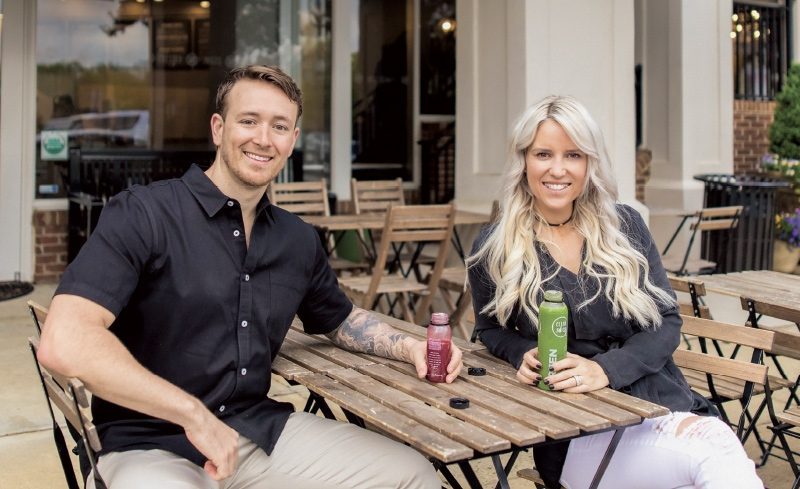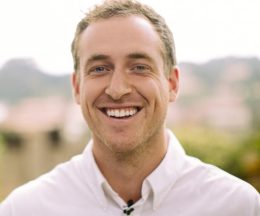Becoming certified was burdensome and expensive, he admits, but he and his wife and co-founder, Kat, thought it was essential. “There are a lot of concepts out there that claim to have a healthy concept but they’re adding sugar, or they’re using non-organic. Why not give them the best materials that are going into those products they’re consuming?”
It’s more expensive to source organic materials, but supply prices are getting better as Clean Juice is growing, now with 30 stores open and a forecast to have 75 stores open by the end of 2018. “We feel if someone is going to pay $7 for a juice, they’ll pay $8 for organic juice,” and the cost of goods sold is under 35 percent, “which is a little high” but so far hasn’t deterred customers.
“We feel that this is the tip of the iceberg in terms of where health and wellness is going,” he said.
Key to that fast growth is an equity partner, which the pair brought on early even though founders often avoid that move because they don’t want to give away equity. Another partner was added as they began looking into franchising.
“We have about 25 people on staff, which is definitely heavy” for a young brand but a clear positive for prospective franchisees—ownership structure and corporate finances have a direct impact on how much support franchisors can give and how long founders can remain in control.
“Only do what you need, and really define what you need before you look for equity,” he said, adding the Eckleses own 70 percent while the other two partners own 30 percent. “I think it’s about how quickly you scale your business. We really wanted to scale and we knew we had a concept we could take to market.”
Tony Valle, who operates consulting firm ELM Performance and was a NextGen judge, approves of the setup. “That was the first question when I heard their story, how much do they still own?” Founders should not shy away from bringing in investors, but they should “work hard to keep all the voting shares” in their control. “That’s the hardest thing to keep.”
Landon and Kat, both in their young 30s, are also growing their family, and Landon’s real estate background paired with Kat’s personal interest and education in nutrition is a winning combo. “She started eating clean after our first was born. So Kat has been self taught, but more recently she has graduated from the Institute of Integrative Nutrition. She’s the brains behind the products we serve.”




